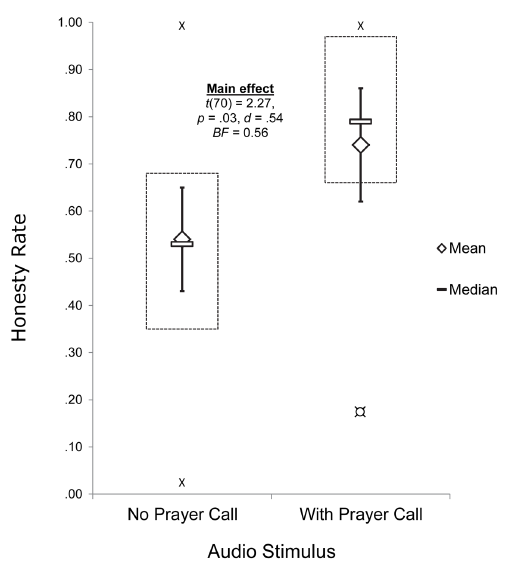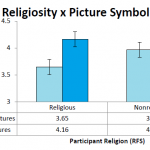People placed in religious environments tend to act more morally – but what, exactly, triggers this behavioural shift? There’s been a few recent studies which I think are really interesting, because they begin to reveal the importance of culture.
In the first set of studies, Mark Aveyard at the (American University of Sharjah, United Arab Emirates) tested Muslim students on their cheating behaviour.
The students were asked to undertake a computer-based maths quiz. Unfortunately, the computer program had a bug, so that it would automatically show the answer after a few seconds had passed – unless a key was pressed. They were alone in the room, so Aveyard had to rely on their honesty to press the key and so not see the answer.
This was all a set up, of course. In fact, Aveyard really wanted to see if religious priming would affect how honest the students were.
What he found was that a priming task involving words (the subjects had to unscramble a sentence with either religious or secular meaning) had no effect on honesty.
Then he tried something different. In a follow-up study (shown in the figure), Aveyard played the students an audio recording of a busy street before they took the maths test, asking them to count the number of car horns they heard.
For half the students, the recording also had, in the background, the Islamic call to prayer (athan).
Listening to the call to prayer dramatically increased honest, as shown in the figure.
Why should a call to prayer work as a religious prime when a word task did not? One possible reason, Aveyard says, is that the religion and context matters. Maybe word primes work in the post-Christian West, but not in the Islamic Middle-East.
In the next post, we’ll take a closer look at that from a Western perspective
![]()
Aveyard, M. (2014). A Call to Honesty: Extending Religious Priming of Moral Behavior to Middle Eastern Muslims PLoS ONE, 9 (7) DOI: 10.1371/journal.pone.0099447
 This article by Tom Rees was first published on Epiphenom. It is licensed under Creative Commons.
This article by Tom Rees was first published on Epiphenom. It is licensed under Creative Commons.















